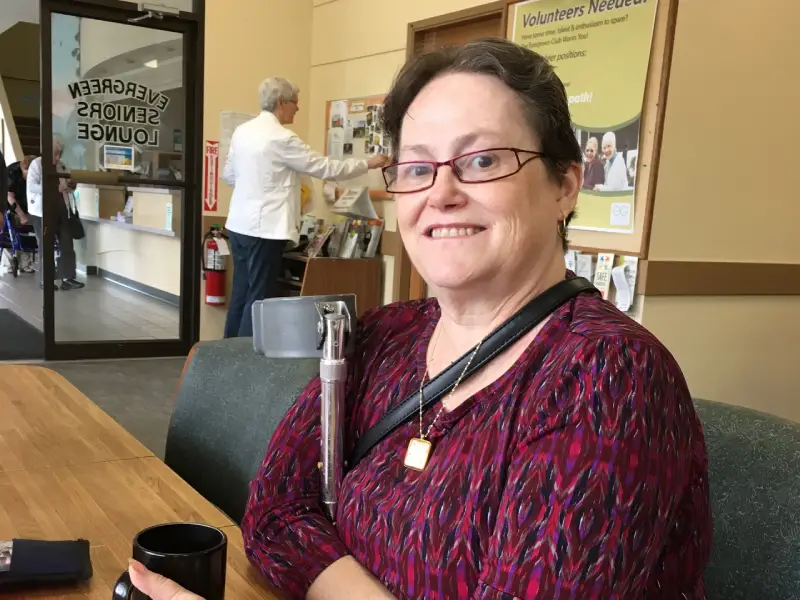Linda's Story

From Personal Pain to Community Strength. Linda’s story is a powerful example of turning a personal struggle into a community mission. Facing her diagnosis in isolation, she dedicated her life to building a community and raising awareness so that no one else would feel lost.
Linda’s Story
I am a retired RN who was diagnosed with MG at the age of 42. I had symptoms as a child. I was forced onto disability at that time. So, I have been living with this for a very long time. There was no internet at that time, so all my information came from a pamphlet.
I was tested for MS. The test came back negative.
Then I saw a new ophthalmologist who thought I might have MG. He wanted me to see a neuro-ophthalmologist on the mainland. I live on Vancouver Island, so the trip to see them and get back takes 16 hours. I was very nervous, and my GP, trying to be optimistic and reduce anxiety, said, “Go see the specialist, but don’t worry; you don’t have it.” Famous last words.
I went, and the specialist looked at my eyes and called a student over to see what my eyes were doing. It is called the myasthenic twitch. That is how I got my diagnosis.
My life totally changed with the diagnosis; I could no longer work in my chosen profession. I went through a lot of depression when I was diagnosed.
I felt like I was so alone on a raft in the middle of the ocean. I didn’t want anyone else to go through it.
It scared me to have to go to the emergency room, as no one knew much about MG, so I went to work doing yearly newspaper articles to raise awareness.
I could go to any in-person support groups, so about 8 years ago I started an online support group. We have two video support groups where the participants can help and support each other.
I also organized at least 5 walks in my city to raise awareness.
In 2014 I was asked if I would like to become a director of the Myasthenia Gravis Society of Canada by Cap, who founded the organization. At that time it was an Ontario group, but Cap had visions of it becoming a national organization.
In the last 3 years it has become a national organization. Our support groups have people from all across Canada.
With MG, I have good days and not-so-good days. On a good day I can do maybe two activities. I have to plan my activities and allow rest between. I can no longer walk any distance, so I got a power wheelchair so I can go for a walk with my dogs. It took a while to wrap my head around needing the chair, but having it has improved my quality of life. The forgotten people are the caregivers. MG affects every aspect of our life, but it also affects every family member as well.